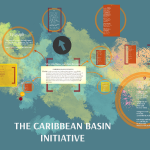The UWI’s Dr. David Smith among Scientists who prepared first Sustainable Development Report

Dr. David Smith, Coordinator of the Institute for Sustainable Development (ISD) and Director of the Centre for Environmental Management (CEM) at The University of the West Indies (The UWI), is one of 15 independent scientists who prepared the Global Sustainable Development Report (GSDR).
This inaugural global report, commissioned by the United Nations Secretary General, was launched last month ahead of the 2019 SDG Summit. It aims to strengthen the science-policy evidence-based approach to advance knowledge that informs action and supports policy makers and stakeholders in implementing the Sustainable Development Goals (SDGs) towards the 2030 Agenda for Sustainable Development.

Entitled “The Future is now: Science for achieving the SDGs”, the report stresses the need for governments, business, communities and civil society to transform key areas of human activities such as food, energy, consumption and cities. It reveals that some models of development have delivered prosperity to hundreds of millions, but have also led to continuing poverty and other deprivations; unprecedented levels of inequality that undermine innovation, social cohesion and sustainable economic growth. The group argue that the situation has brought the world close to tipping points with the global climate system and biodiversity loss. It states further, that these development models are not sustainable, and the progress made in the last two decades is in danger of being reversed through worsening social inequalities and potentially irreversible declines in the natural environment that sustains us. The scientists conclude, however, that a far more optimistic future is still attainable.
The report emphasises the need for a collective, holistic approach along six key “entry points” that can accelerate transformational action for sustainable development. These include: human well-being and capabilities; sustainable and just economies; food systems and nutrition patterns; energy decarbonisation with universal access; urban and peri-urban development and global environmental commons.
Read more at: The University of the West Indies
Source: CARICOM TODAY

 Previous Post
Previous Post Next Post
Next Post